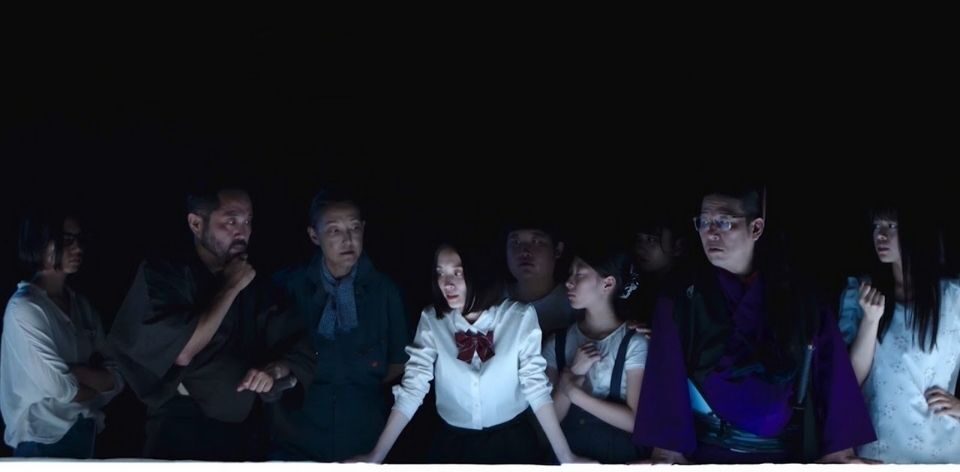From the moment Kosuke Nakahama’s film opens until its gut-punch of a conclusion only 77 minutes later, B/B rarely lets up for breath. Part mystery and primarily a character study, it deals with some very heavy topics as it shifts tone and texture constantly.
When we meet Sana (played by the singularly named Karen) — in a fictional 2020 where the Olympics have been cancelled due to a corruption scandal — she’s being interrogated by a skeptical detective and a psychologist. Through Karen’s rapid-fire delivery of shady insults and negative view of the world, we glean two key facts. A murder has occurred, and Sana has dissociative identity disorder.
Her 12 personalities have witnessed something, and the framing device is there to determine who saw what and when. As such, it’s kind of an elaborate parlour room gathering with multiple people inhabiting a single chair. Sana has been spending time with Shiro (Koshin Nakazawa), the victim’s young son. As one of the rare people who accepts and separates her personalities, the two become fast companions.
Nakahama made B/B as his graduation film, and it’s an elaborate demonstration of an emerging talent. Each of the personalities are played by different actors, so we see physical manifestations of each of Sana’s identities. There’s a samurai, a schoolgirl, a mother, a middle-aged blowhard who just thinks he’s a samurai and so on. Rather than Sana just taking on these personas, they actively argue and vie for dominance.
Karen, in an remarkable early career outing, effortlessly slides back and forth from the dominant persona of Sana to a handful of her identities. While there are scenes where all the identities interact with each other, often for a comedic effect, Karen has a more understated performance by focusing on one or two of them. This helps sell the concept when the film takes a noticeably darker turn in the second half, dealing with abuse and shared trauma. “To save is to not cause pain,” claims Sana, or possibly one of her personalities. “By causing pain we are all perpetrators.”
While taking place in only a handful of locations, Nakahama and cinematographer Junki Kobayashi make the most of lensing it. Bright and vivid exterior colours mix with interiors that feel alternatively claustrophobic and surreal. There’s one sequence where Sana sits alone in her apartment: it’s lit in neon blue while her personalities overwhelm her with their bickering. In another, a room with only harsh lighting from a table illuminates the so-called Council of Sages, the term Sana uses for a gathering of her identities. It’s incredibly effective in a short feature such as this.
It would be very easy to see this as something that mocks or belittles dissociative identity disorder as so many similar films have been know to do. Yet in a searing final speech, it’s possible that Sana’s condition serves as a microcosm for broader society, arguing that we’re collectively complicit in the ills of the world. If this is a kind of hell we’re in, then we’re all partially to blame for it. It’s an intriguing and engaging introductory thesis from Nakahama, and I can’t wait to see what he has lined up next.
2020 | Japan | DIRECTOR: Kosuke Nakahama | WRITERS: Kosuke Nakahama | CAST: Karen, Koshin Nakazawa, Tarou Sanami, Hito:michan, Chimari Nonohara | DISTRIBUTOR: JAPAN CUTS 2021 | RUNNING TIME: 77 minutes | RELEASE DATE: 22 August – 2 September 2021 (JAPAN CUTS 2021)







